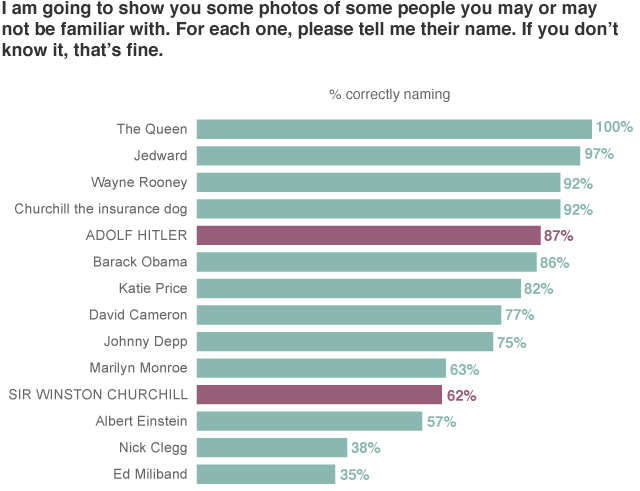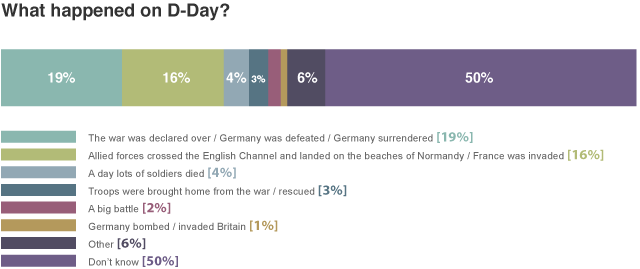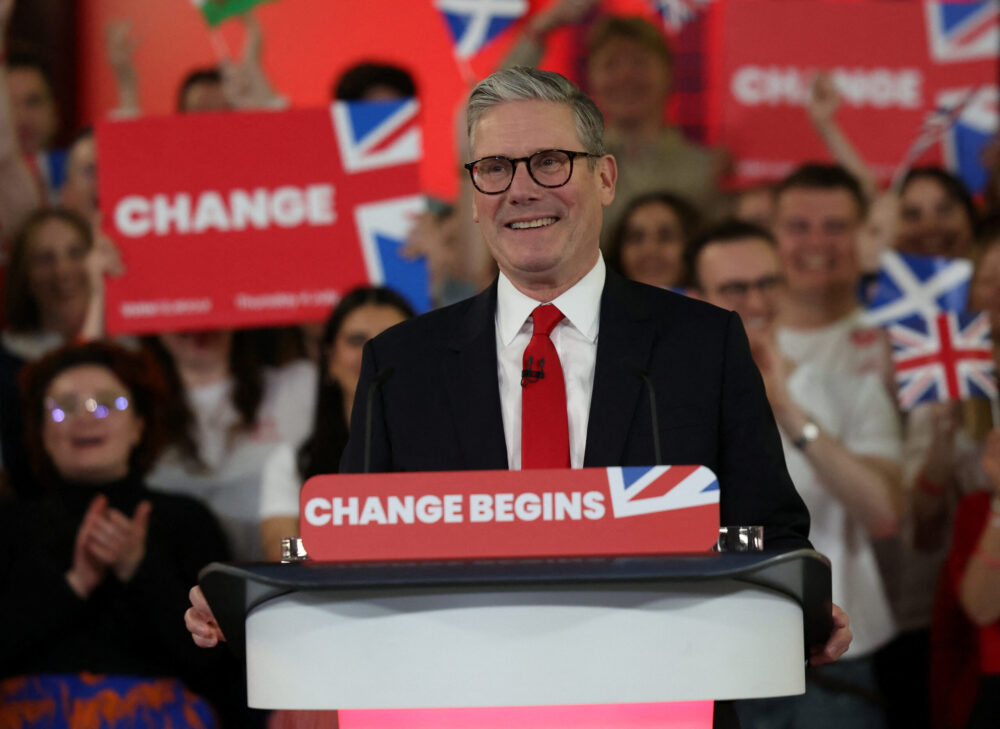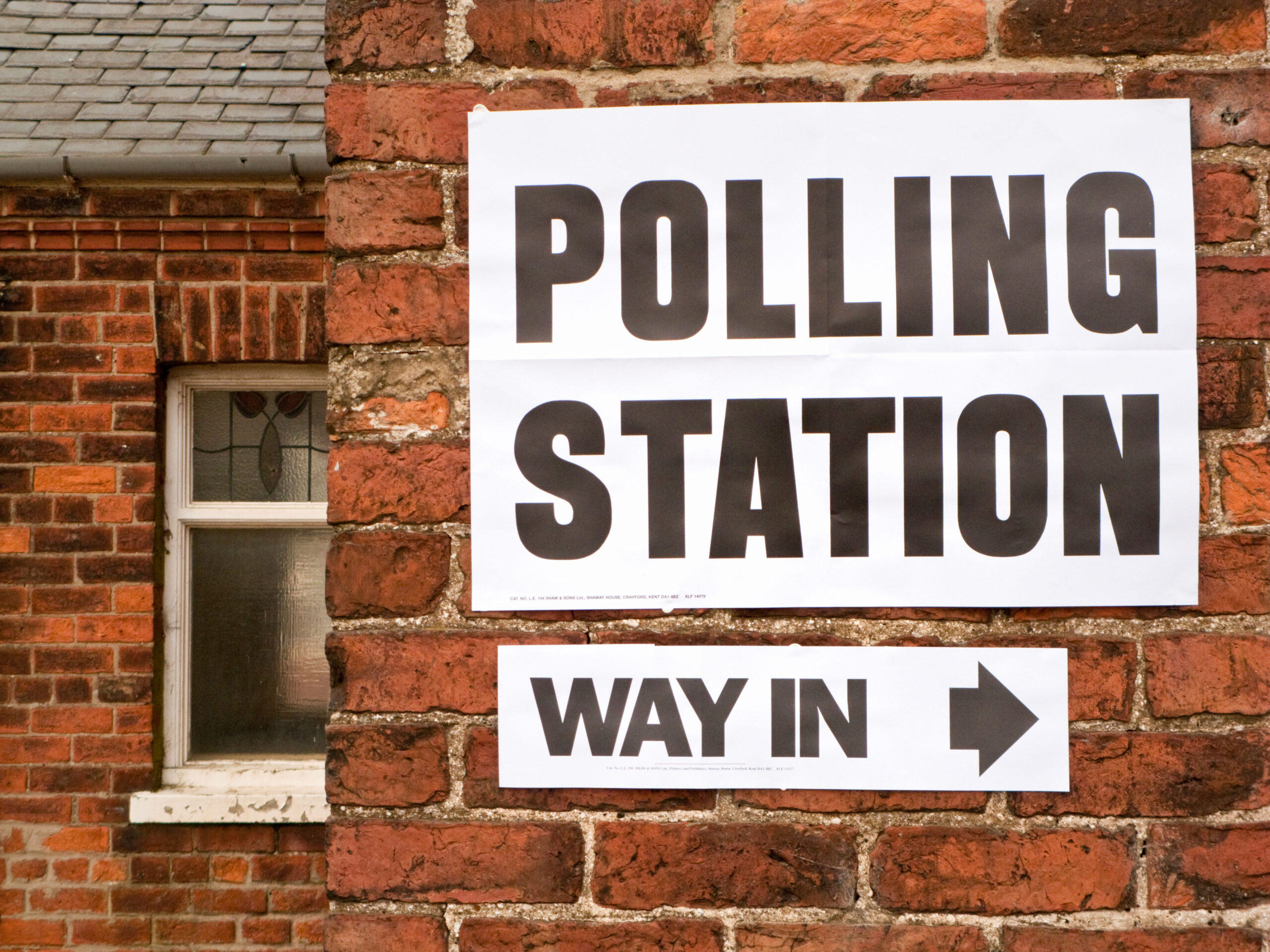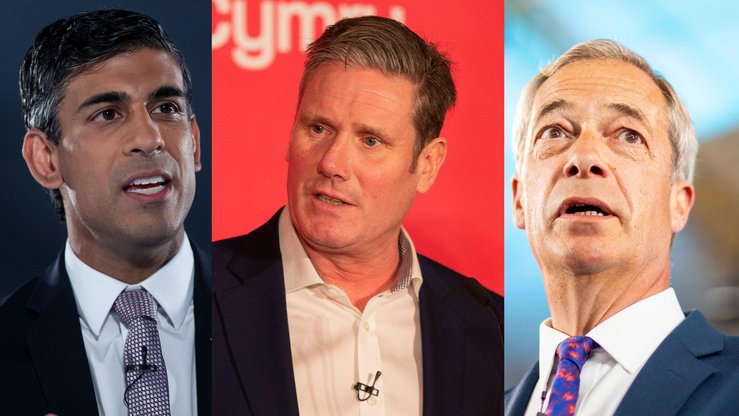
If you were to ask a representative sample of 1,000 children aged between 11 and 18 when the Second World War began, what proportion do you think would be able to name the right year? How many do you think would know that the Battle of Britain was fought in the air, rather than on land or at sea?
On 28 June, the Queen will unveil a new memorial to honour the 55,573 men of Bomber Command who lost their lives in the Second World War. The prospect of this event prompted me to find out how well we are doing at ensuring that younger generations know about crucial events in their country’s recent history. Some of the results are quite startling.
Asked whether the Battle of Britain was fought on air, land or sea, just over two in five (43%) answered correctly. Only one third (34%) knew it was fought in the 1940s, and just one in 27 knew it happened in 1940.
If a particular event like the Battle of Britain is obscure to today’s children, surely they would know that the Second World War began in 1939? Unfortunately only 34% answered this question correctly – including, shockingly, less than half of those aged 17 to 18. Only 39% knew it ended in 1945, again including less than half of those in the final school year.
However, 86% knew there had been two World Wars – though one in twenty thought there had been three.
The children were shown pictures of various current and historical figures. All but a tiny handful recognised the Queen (and a stunning 97% recognised Jedward). More than nine out of ten identified Churchill the insurance dog – half as many again as correctly named Sir Winston Churchill (62%).
Asked what had happened on D-Day, the most frequent answer was that it was the day the war ended. Only a fifth of children had some idea of the right answer; half said they did not know.
Nearly a third (29%) were unable to give any unprompted explanation of why Britain had fought the Second World War. This included more than a fifth (21%) of those aged 17-18, and a quarter of those aged 15-16.
Asked whom Britain fought against in the Second World War, 89% correctly named Germany – though only 15% mentioned Japan. Nearly a quarter thought Britain’s enemies had included Russia, France, China, the USA, Australia or New Zealand. Only 61% correctly named the USA as an ally of Britain’s during the war; one in ten thought our allies had included Italy, Germany or Japan.
There was some encouraging news, though: 95% correctly identified the Royal British Legion’s poppy, and 84% knew what it signified.
While it is sobering to find that so many children of secondary school age simply do not know important facts about Britain’s recent history, I don’t mean to criticise the children. We must all take responsibility for passing what we know to the next generation.
It’s one of the reasons why I’m delighted that Michael Gove is considering the reintroduction of a modern equivalent of the O-Level exam. We need to demand more of our children if they are to understand our country’s institutions and history as well as be prepared for the intensely competitive world economy. I hope David Cameron gives his Education Secretary all the support he needs against resistance from the Liberal Democrats.
Another way we can help remember is to build lasting memorials to those who have sacrificed so much to serve our country.
That is the purpose of the Bomber Command Memorial, which I am proud to support. Those who flew on countless missions over Nazi Germany and occupied Europe, many of whom were barely out of their teenage years, knew the odds were stacked against them, and many did not return.
Of every one hundred airmen who joined Bomber Command, forty-five were killed. Six were seriously wounded, eight became Prisoners of War, and only forty-one escaped unscathed (at least physically). Of the 120,000 who served, 55,573 were killed. This included over 10,000 Canadians. Of those who were flying at the beginning of the war, only ten percent survived. It is a loss rate comparable only to the worst slaughter of the First World War trenches.
All of us should be thankful for the sacrifice they made to ensure that we can all live in a free society.
For more information about the Bomber Command Memorial, which is being inaugurated in Green Park on 28 June 2012, please click here.





